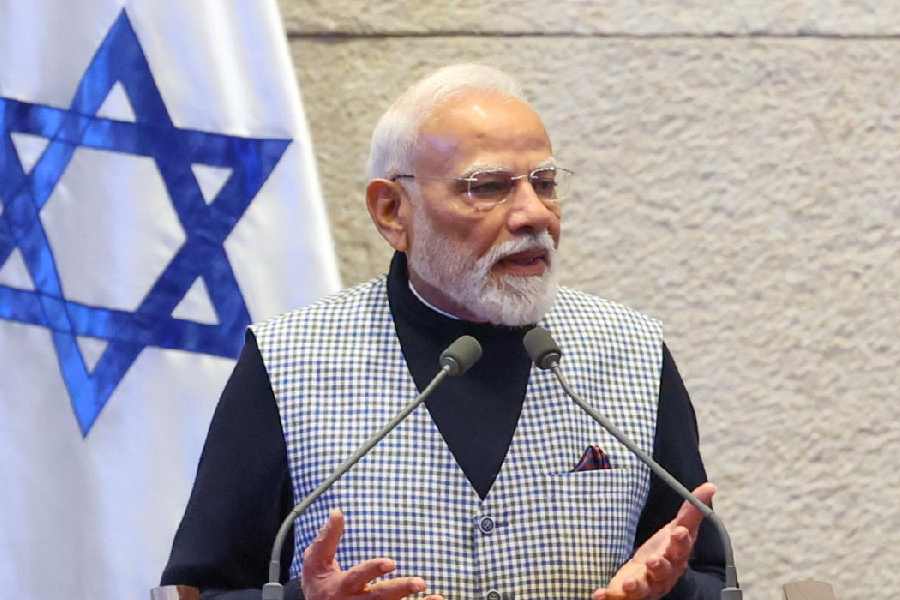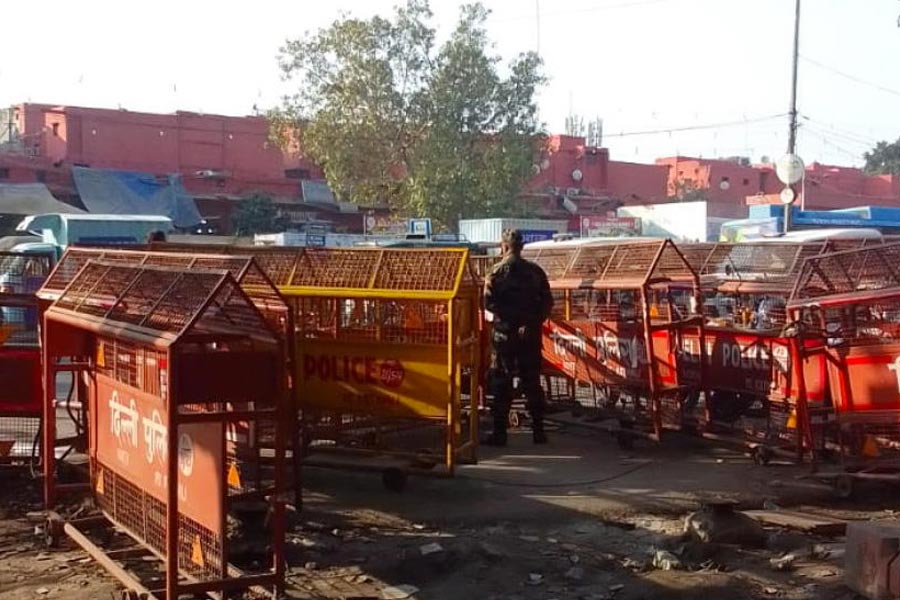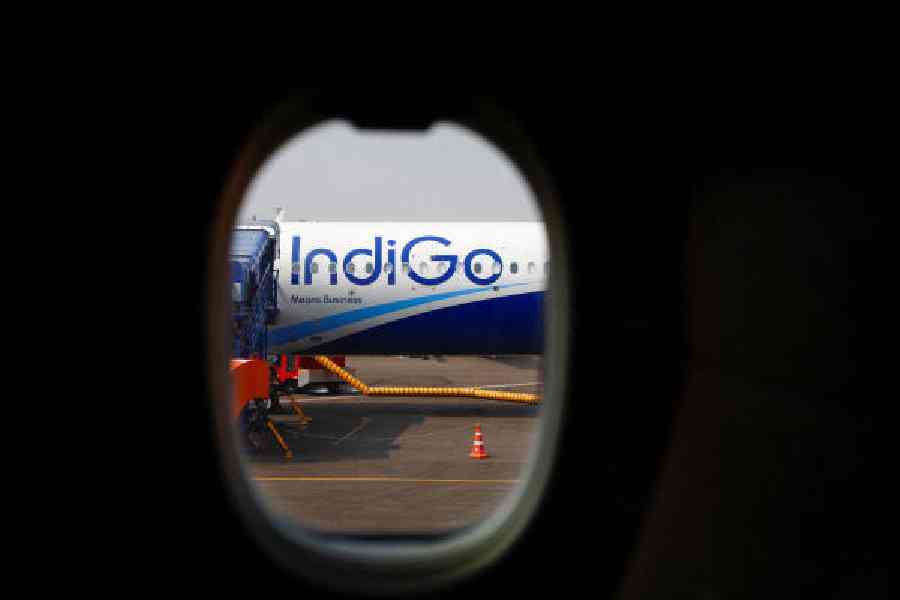 |
| Mahela Jayawardene |
Gros Islet (St Lucia): Soon to be 33, Mahela Jayawardene continues to add class to Sri Lanka’s batting line-up. The former captain spoke to The Telegraph the other morning.
The following are excerpts
Q It has been over a year since you gave up the captaincy. How do you look back on this period, of playing purely as a senior pro?
A It’s different, obviously. When you’re the captain, you have added responsibility... Even though I don’t have that same responsibility of decision making, I’m involved in most of the decisions the team makes... You contribute and you try and help the captain, help the younger players... It’s a different role I’ve been given now. It’s exciting and, at the same time, I get time for myself... One of the reasons I gave up the captaincy was to push myself as a player and improve. Also, I’ve always wanted a new challenge. The day I realise I don’t have the hunger to improve, I’ll call it a day.
Usually, in the subcontinent, captains get removed. You’re one of the few to have stepped down on your own terms...
(Grins) It wasn’t an easy decision... I’d really enjoyed my captaincy, but I felt it was time for me to let it go... I’d already introduced a few things which I wanted introduced and I knew that the guy who’d take over would continue that work. It wasn’t an issue of me dumping the team or not wanting to contribute. The selectors, in fact, were shocked when I informed them of my decision.
Rahul Dravid, for example, gave up the captaincy in two years, wanting to focus on his game. Why is it that, after a period, captains lose the hunger?
Well, it’s always a personal decision. I firmly believe you should not be holding on to anything just for the sake of it. There should be challenges and the hunger to improve must always be there... I have no regrets... I did things the way I wanted to... People need to make the right decisions and, I think, I’ve done that in my career. I’ve stayed true to myself.
How did you handle the pressures of captaincy?
Well, more than pressure, it was a challenge. It was an opportunity for me to make decisions and, once you reach that frame of mind, you don’t really feel the pressure. Of course, the decisions can sometimes go right, sometimes they can go wrong. You take both in the right spirit and get on with it. When it came to batting, I was a batsman and not the captain... I made sure that I didn’t get those two mixed up because, first and foremost, I had to contribute as a batsman.
What did you learn during your years as captain?
A lot of things... Learnt that one has to be transparent... You have to be open with your players, discuss things with them. You cannot, for example, just pick or drop somebody... You’ve got to explain things to him... Learnt that communication and transparency are probably the two most important things in a team environment. Also, one has to remember that the guys come from different backgrounds and one has to try and fit them in one group. You have your rules and regulations as a team but, at the same time, you need to respect individuals and give them that little bit of freedom.
How has Kumar Sangakkara shaped up as captain?
He’s doing really well... You have to understand he’s in a transition period and is trying to make a few changes. Some seniors have gone and youngsters have been blooded... In my time, too, we had quite a few guys leaving... Kumar’s handled the situation well... We’ve always felt that he’s a good leader and a thinking cricketer. That combination is an asset for Sri Lanka.
Is there a formula, so to say, for success?
I’ve consistently maintained that one should try and keep things simple, not complicate matters. Let the players take control and if, as a group, you can be confident in what you’re doing, then what you do doesn’t really matter. Indeed, to be successful, you need to be confident.
What was it like in the first few matches after giving up the captaincy?
I had no problems... I’d been a player before as well. But, like I’ve said, my role as a leader in the team didn’t change.
So you’re drawing a distinction between (a) being the captain and (b) being a leader in the group?
Yes, in our set-up, we’ve always had leaders in the group. Therefore, the only role-change is that, nowadays, I’m not making those final decisions. I come up with ideas and so on, but it’s Kumar who takes the ultimate call.
As a batsman, you’ve constantly been raising the bar. What should the younger lot be doing?
We’ve given them challenges, asked them to set themselves higher goals. What we’ve told them is that when they finish their careers, they should be on a par with myself or Kumar or, in the case of bowlers, (Muttiah) Muralidharan. One of the reasons why I stepped down was that I was in a comfortable zone... If you are cruising over a period of time, then that’s not good for the team or for yourself. So, it’s better to push yourself and see what else you can achieve. That’s why we’ve been successful as individual players — Kumar, Murali, myself... We’ve not been happy with what we’ve got. We’ve always looked for more.
You’ve mentioned goals... Today, what is your target?
Two years ago, I’d set my sights on getting 10,000 runs in both principal forms of the game. That, then, is a short-term goal and I’m not very far from getting there. Once I do, I’ll set myself new goals. I don’t have long-term goals because when you think too far ahead, you tend to miss the immediate picture.
[In 110 Tests, Jayawardene has 9,120 runs; In 317 ODIs, his total stands at 8,702.]
Clearly, you’ve made everybody sit up with your World Twenty20 performances, as an opener...
(Laughs) I took it up as a challenge (in the IPL)... As I pointed out the other day, I’ve actually pushed myself in a different direction.
The final one... Sri Lanka is a co-host of the 2011 World Cup. Has the ‘fever’ already caught on back home?
Not as yet... For one main reason... After over two decades, we’ve come out of a bloody civil war and, I think, the people are much more involved in the redevelopment of the country. But, in a few months, I expect everybody to catch the ‘fever’.











